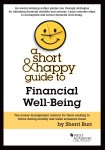by Sherri Burr
 How do you determine when you are making progress as a writer? I submit that there are at least 10 stages to measuring writing achievement.
How do you determine when you are making progress as a writer? I submit that there are at least 10 stages to measuring writing achievement.
Stage 1: Conceptualize an Idea
Ideas emerge from an infinite number of sources, from reading books and going to movies to walking with friends or dreaming. When you get a promising idea, write it down and rejoice because your imagination is working.
Stage 2: Express the Idea
Copyright law protects the expression of ideas, but not the ideas themselves. Your reward for fixing your ideas in a permanent form, such as an article for a magazine or a chapter in a book, is that your work is automatically copyrightable. You also have the option to place copyright notice (© 2015 by writer) on your work or register it with the U.S. Copyright Office at www.copyright.gov.
Stage 3: Expose Your Writing
Sending your work to magazine editors, agents, book publishers, or print on demand websites indicates you are ready to share your words with the world. You must risk rejection to reap rewards.
Stage 4: Receiving Personalized Rejection Letters
There are three types of rejection: (1) silence; (2) form letters; and (3) personalized rejection letters. You learn to be grateful for the third because they signify that your work resonated enough with outside sources willing to spend time telling you how to fix it or recommend another publication. If the rejection letter is nasty, use it as inspiration and ultimately get the last laugh.
Stage 5: Acceptance with No Pay
Some writers start out by publishing works in newsletters connected to social networks. This accomplishes the goal of seeing your words in print.
Stage 6: Paid Enough for Coffee at Starbucks
When you receive that first check, no matter how small, celebrate and dance to the music. I once received a check for $4. Do you cash or frame a $4 check? I recommend cashing it because it proves that you are indeed in the business of writing. Count the $4 as income on your Schedule C and deduct all your writing related expenses.
Stage 7: Paid Enough to Afford a Meal
When the checks come in for $50 or hundreds of dollars, you’ve attained another milestone. Treat a friend to lunch or a loved one to a gourmet dinner. Toast your success!
Stage 8: Paid Enough to Fund a Vacation
If you grossed enough revenue to fund a vacation, you’ve climbed to another echelon of freelance writers. Enjoy your trip.
Stage 9: Paid Enough to Live On
You’ve truly arrived as a creative person when you can live on the proceeds. Writers at this level often have steady gigs as columnists, contribute to a number of publications, write books, or all of these. Since you now benefit from a steady income flow, be careful to mind your expenses and do not spend more than you earn.
Stage 10: New York Times Best Selling Author
Congratulations, you’ve hit the jackpot by joining the likes of John Grisham, David Baldacci, and Janet Evanovich. When your writing income substantially exceeds your living expenses, it’s time to think seriously about giving back. David Baldacci (Absolute Power, The Camel Club) and his wife started the Wish You Well Foundation to increase literacy rates in this country and abroad. Whatever your cause, you can really make a difference. Ultimately, that’s what the writing life is all about.
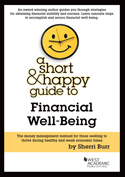 Sherri Burr is the Regents’ Professor of Law at the University of New Mexico School of Law where she teaches Entertainment Law, Intellectual Property Law, and Art Law. A graduate of Mount Holyoke College, Princeton University, and the Yale Law School, she has authored or co-authored 20 books, including A Short and Happy Guide to Financial Well-Being (West Academic, 2014). Sherri is also a long-time member of SouthWest Writers and a regular contributor to the organization’s newsletter SouthWest Sage.
Sherri Burr is the Regents’ Professor of Law at the University of New Mexico School of Law where she teaches Entertainment Law, Intellectual Property Law, and Art Law. A graduate of Mount Holyoke College, Princeton University, and the Yale Law School, she has authored or co-authored 20 books, including A Short and Happy Guide to Financial Well-Being (West Academic, 2014). Sherri is also a long-time member of SouthWest Writers and a regular contributor to the organization’s newsletter SouthWest Sage.
This article was originally published in the December 2007 issue of SouthWest Sage and is reprinted here by permission of the author.


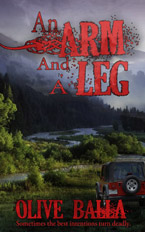

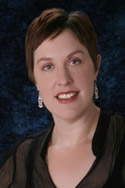 Bentley Clark isn’t sure whether the phrase is “racking my brain” or “wracking my brain.” You can assist her with the distinction by leaving a comment below.
Bentley Clark isn’t sure whether the phrase is “racking my brain” or “wracking my brain.” You can assist her with the distinction by leaving a comment below.
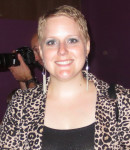 A.R. Aeby received a Bachelor of Arts in history almost solely from the love of stories, even nonfiction ones. She is the author of the book review blog
A.R. Aeby received a Bachelor of Arts in history almost solely from the love of stories, even nonfiction ones. She is the author of the book review blog 